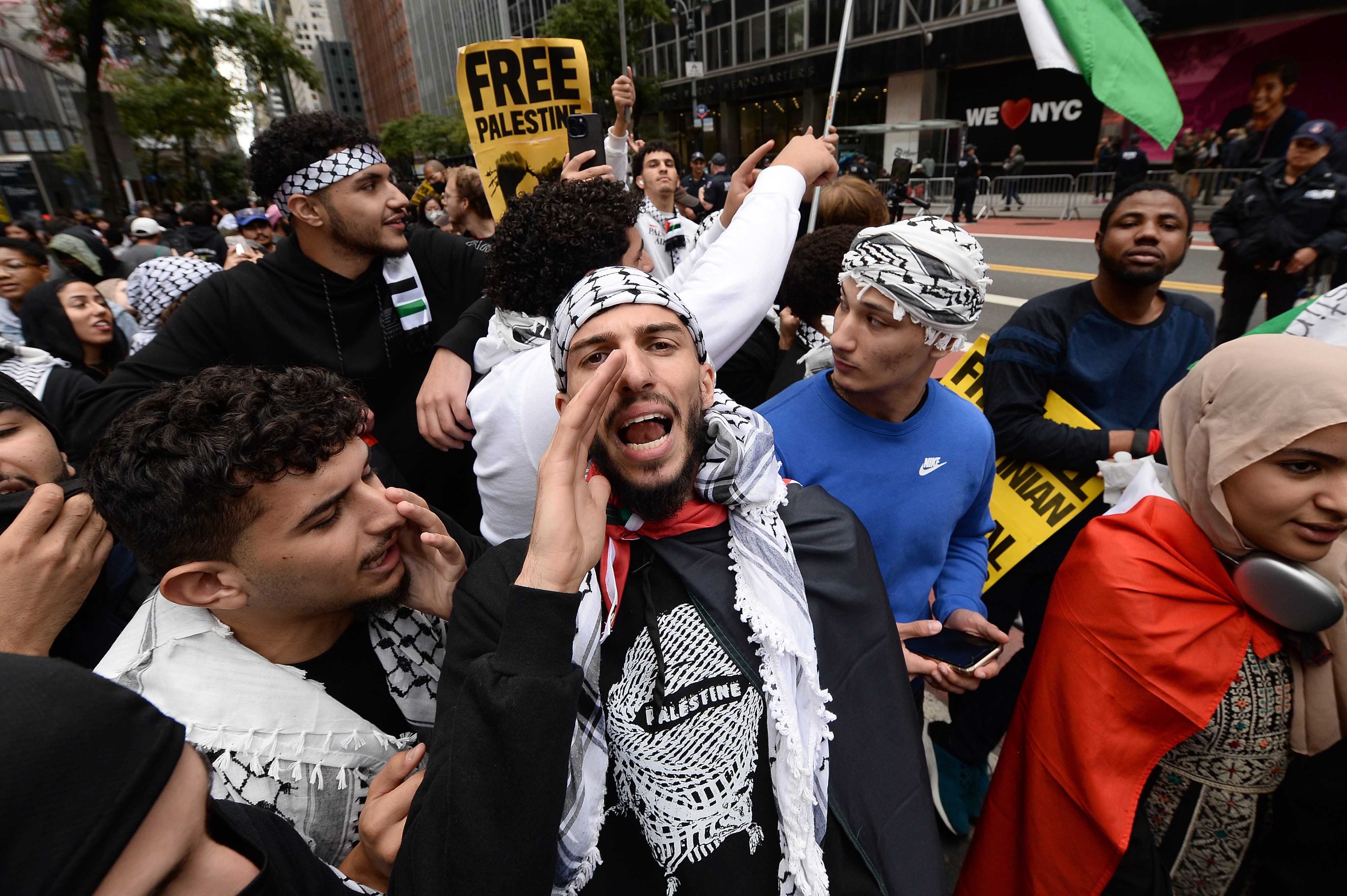For Palestinians, this conflict means that once again, they are facing death and disruption on a massive scale. The surprise attacks by Hamas have been met by Israeli firepower and severe condemnation by world leaders. Germany is considering suspending aid to the Palestinian territories, and the brutality of the attacks has shocked the world, leading observers to compare Hamas to ISIS, one of the most feared terror organizations of the 21st century.
But Palestinians are also finding support for their cause. Demonstrations and celebrations of the attacks have taken place in Iran, Yemen, Turkey, and Kuwait, as well as in multiple western cities, including New York City, Berlin, and London. The issue of Palestinian rights and their demands for statehood are once again front page news, after fading as other conflicts such as the war in Ukraine took center stage.
The attacks have also undermined prospects for a wider Mideast peace and the proposed deal to normalize relations between Israel and Saudi Arabia. Just two weeks ago, Netanyahu touted the plan at the United Nations General Assembly in New York and said that Palestinians should not have “a veto” on the dealmaking. The response from Palestinian President Mahmoud Abbas was that "Whoever thinks peace in the Middle East is possible before our people achieved their full right is delusional."
Some Mideast observers believe that Hamas’ goal may have been to torpedo the deal, which is now effectively dead. They note the timing of the attacks, which parallel the disruption by the Second Intifada of a prospective Israeli-Palestinian peace accord in 2000.
For Abbas, Hamas’ assault presents a dilemma. His Fatah Party, which controls the Palestinian Authority in the West Bank, has long had a rivalry with Hamas for Palestinian loyalties. This past June, Abbas met with Hamas leader Ismail Haniyeh in Egypt to announce “the formation of a committee to continue the dialogue … end divisions and achieve Palestinian national unity.” This cooperation could now be tested as US Secretary of State Antony Blinken urged Abbas to restore “calm and stability” to the territory, where Israeli forces killed 13 Palestinians, including one child, when violence erupted on Sunday.
Observers believe that Palestinians in the West Bank and neighboring nations will watch to see how things go for Hamas before deciding whether or not to join in their fight.
“If they see a Hamas victory, they might do the same thing. If they see Israel is decisive and powerful, they will be deterred. The whole thing is about deterrence,” says Dr. Mordechai Kedar, a researcher at the Begin-Sadat Center for Strategic Studies at Bar Ilan University outside Tel Aviv.
More For You
For many in Iran, it’s a waiting game for how long Ayatollah Khamenei has left to live.
Most Popular
In a 30-minute call on Thursday, President Donald Trump reportedly told Ukrainian President Volodymyr Zelensky he wants to end the war with Russia as soon as possible — aiming for a deal by summer, but ideally within weeks.
Former British ambassador to the U.S. Peter Mandelson leaves his residence after he was released following his arrest by London police on Monday on suspicion of misconduct in public office, following the release of U.S. Justice Department files linked to the late financier and convicted sex offender Jeffrey Epstein, in London, Britain, February 26, 2026.
The ghost of Jeffrey Epstein continues to haunt the world.
Think you know what's going on around the world? Here's your chance to prove it.
